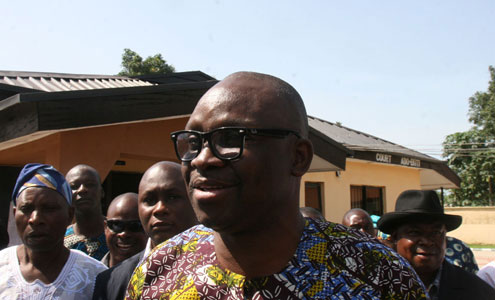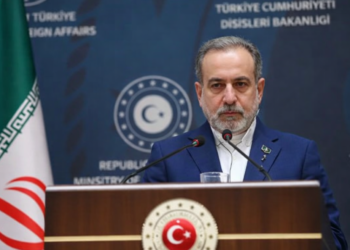Former Governor of Ekiti State, Ayodele Fayose, has finally walked free after years of trial, as Fayose beats EFCC in court over alleged ₦6.9 billion fraud.
The ruling came on Wednesday at the Federal High Court in Lagos, where the judge discharged Fayose of all money laundering and theft charges filed by the Economic and Financial Crimes Commission (EFCC).
Justice Chukwujekwu Aneke upheld a no-case submission filed by the defence, ruling that the EFCC failed to establish a case that would require Fayose to defend himself.
Court Discharges Fayose of All Charges
The EFCC had accused Fayose of receiving ₦1.2 billion from Musiliu Obanikoro, former Minister of State for Defence, during the 2014 governorship election.

He was also alleged to have collected $5 million in cash and laundered over ₦1.6 billion through De Privateer Ltd and Still Earth Ltd, which the prosecution claimed were used to acquire properties.
Fayose and his company, Spotless Investment Ltd, were charged with 11 counts bordering on money laundering and theft.
However, the judge ruled that the prosecution failed to link Fayose to the funds or demonstrate any clear evidence of wrongdoing.
Defence Tears Down EFCC Allegations
In his argument, Fayose’s lawyer, Chief Kanu Agabi (SAN), said the case lacked merit and evidence.
He noted that the person allegedly involved in the cash transaction, Abiodun Agbele, was not charged alongside Fayose.
“With due respect, the predicate offences on which these charges are based do not hold water.
Criminal breach of trust and conspiracy are distinct, and no co-conspirator was charged alongside the defendant,”
Agabi argued.
Justice Aneke agreed, striking out the charges and freeing Fayose from the six-year-long legal battle.
Fayose Beats EFCC in Court After Six-Year Battle
The judgment marks a major blow to the EFCC, which had been pursuing the case since 2018. Fayose was first arraigned before Justice Mojisola Olatoregun but later re-arraigned before Justice Aneke.
The alleged offences were linked to funds from the Office of the National Security Adviser during the Goodluck Jonathan administration.
Despite the public attention and length of the trial, the case ended in favour of the former governor.
Public Reactions and Questions Linger
As Fayose beats EFCC in court, legal observers and citizens are asking questions about the agency’s prosecutorial strategy.
Why was the EFCC unable to prove its case after six years? Was this another example of political prosecution, as Fayose has long claimed? Or was it a poorly built case from the start?
While Fayose celebrates his legal victory, many Nigerians are left wondering if the anti-corruption fight has become more performative than effective.

















